I’ve just returned from a wonderful family holiday in Vanuatu and one thing I noticed was the packaging and other useful items made from natural materials. Of course, I knew the Ni-Vanuatu would have such brilliant solutions for going about daily life, I just wasn’t sure how much of the culture was still practiced. It turns out traditional knowledge is still highly valued. Below are some photos of the things I came across. Obviously these items present few issues at the end of their useful life because nature can reclaim and reuse the resources. There is still the issue though, of preventing over exploitation of natural resources. Here are some photos from the Port Vila Market Place:
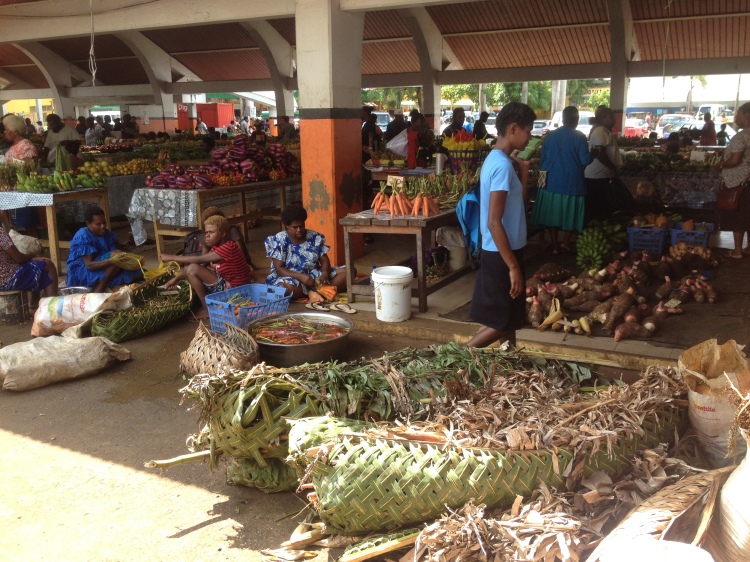

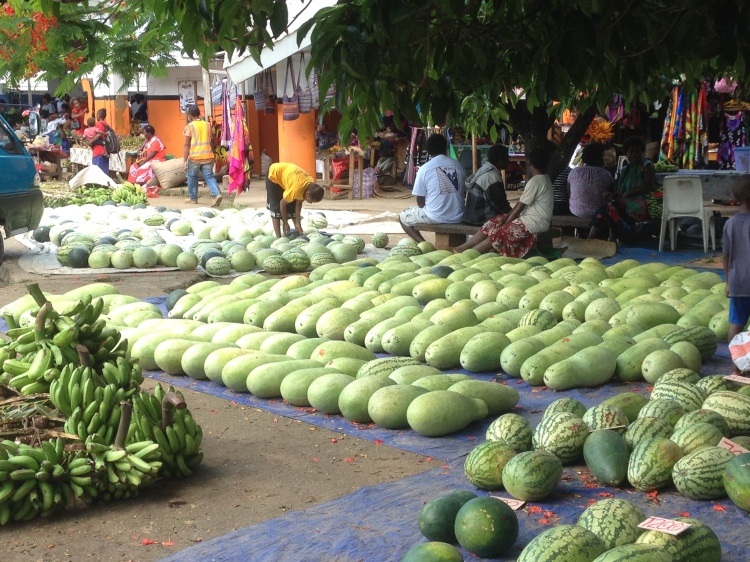
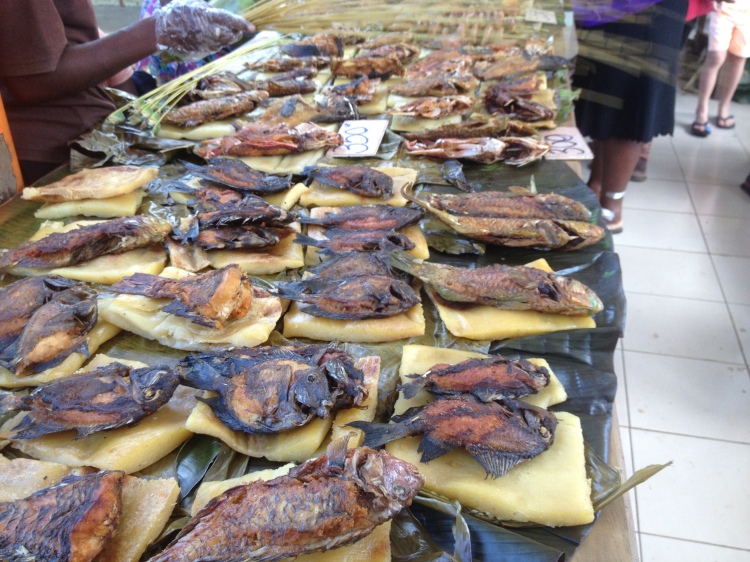
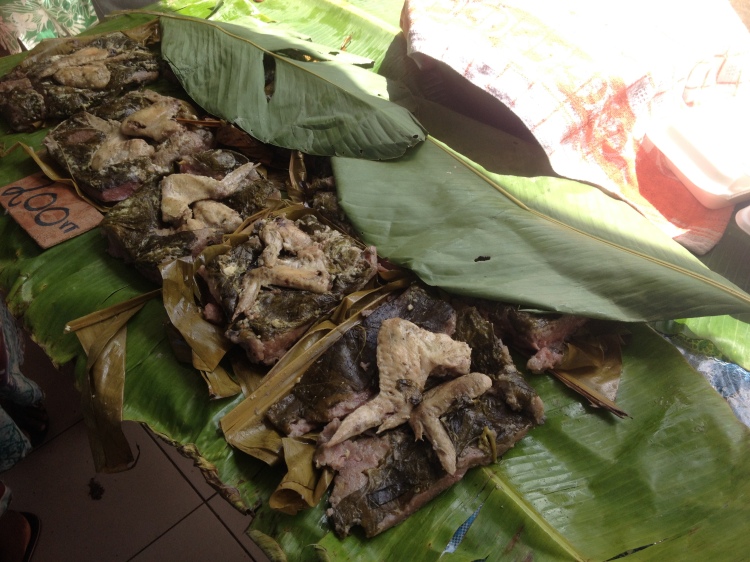
The next few photos are from our village visit. This was our favourite day and it was a great opportunity for my kids to learn about traditional ecological knowledge and for me to casually make some points about natural resources and waste. They thought their presents were very cool.
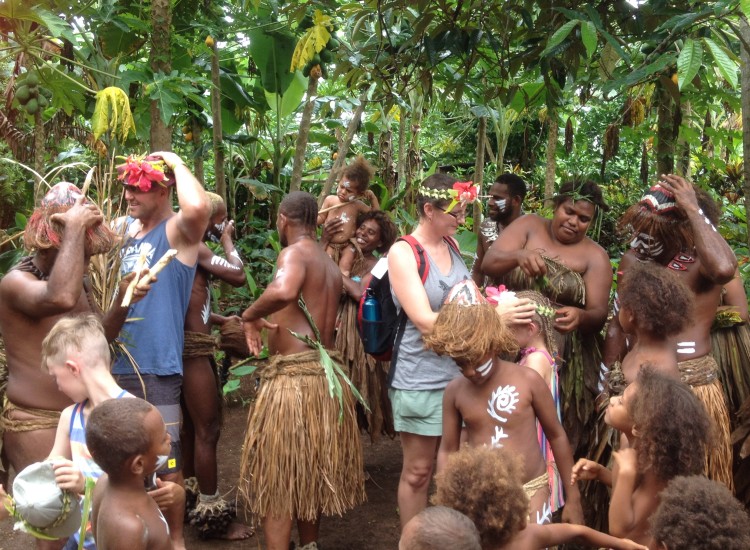
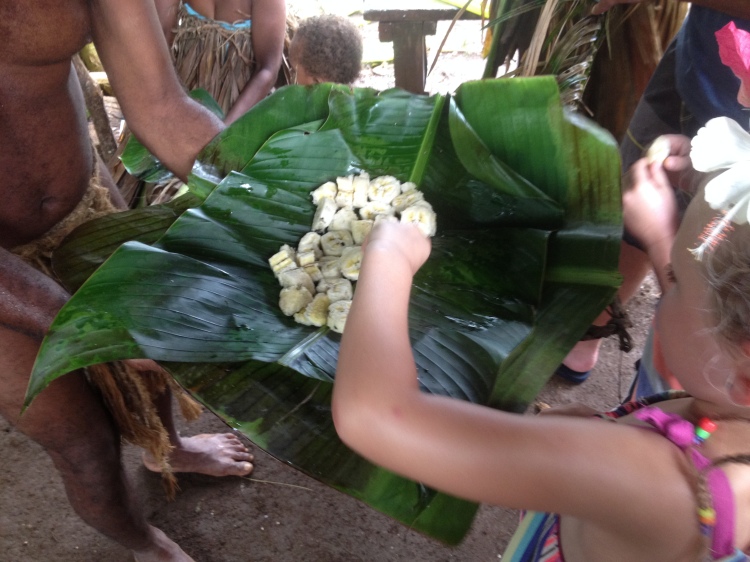
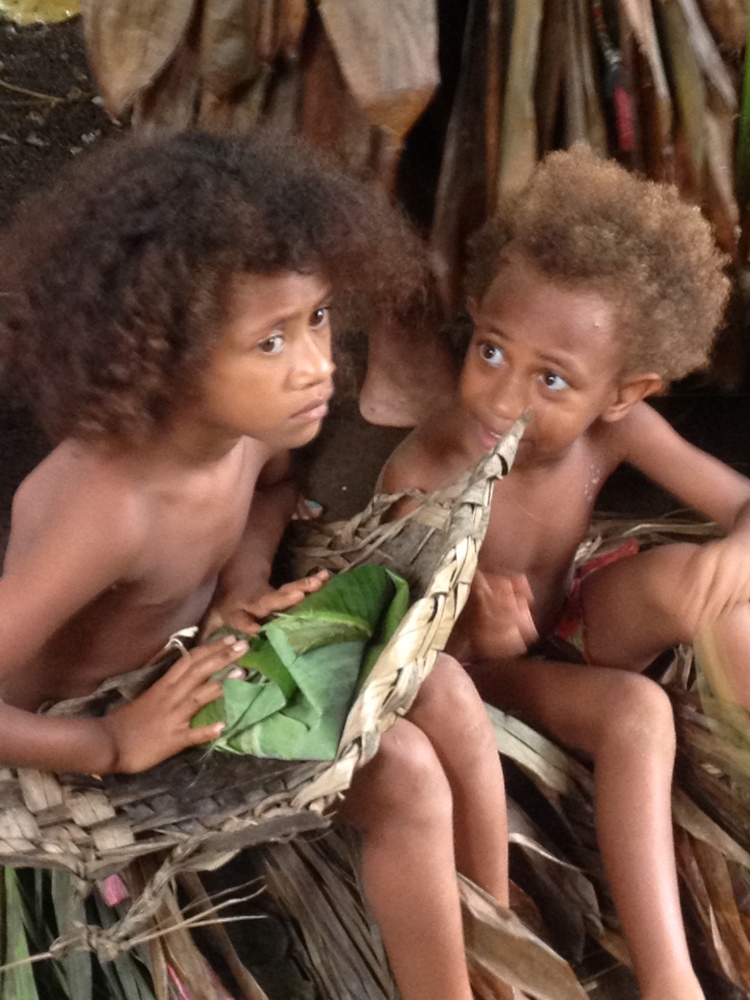



During our ‘Round Island’ Tour we enjoyed mangos for snacks and coconut juice through a straw made from a sapling branch.
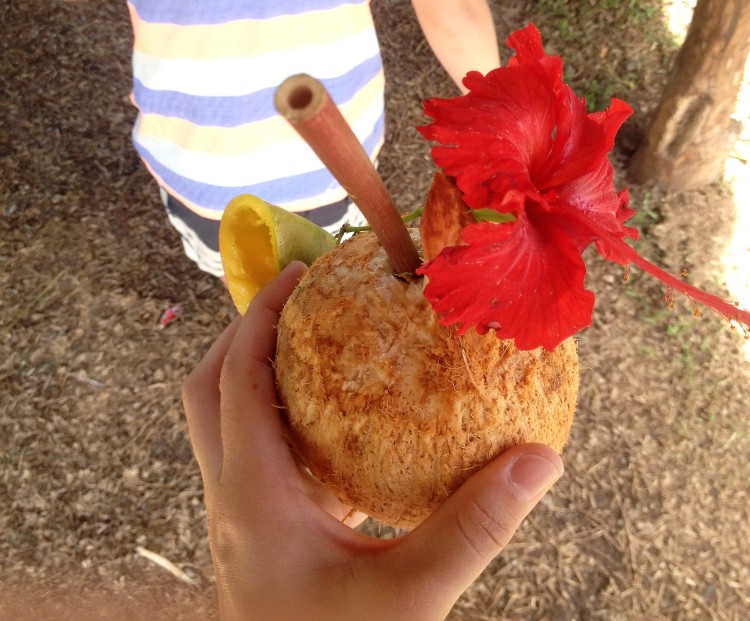
In addition to these experiences we avoided creating waste during our holiday by only purchasing activities (no shopping for souvenirs or anything like that) and by eating in for all meals (I ain’t cooking on holidays). Luckily reusable napkins, ramekins, and so on were common where we ate. Most of the time we didn’t feel like snacks because of the heat – ice creams excepted, and the water was drinkable in our area so we used our water bottles. We did have a couple of canned drinks but I’ve seen and heard conflicting information about whether cans can be recycled in Vanuatu.
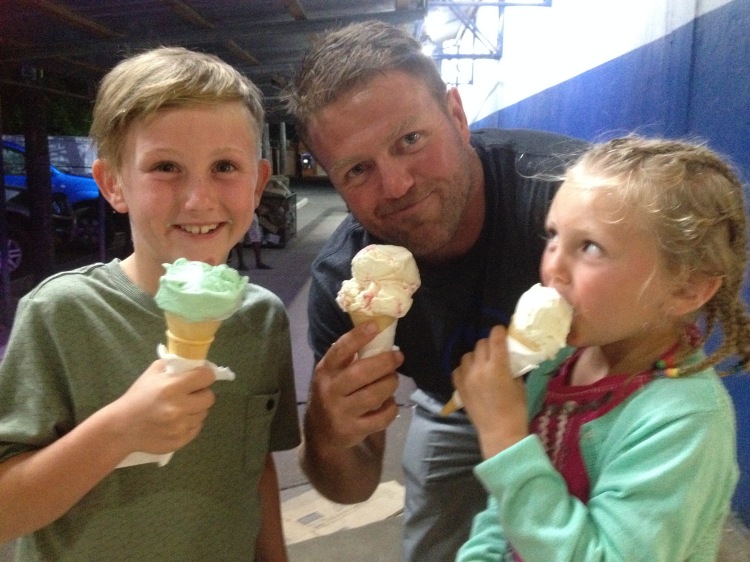
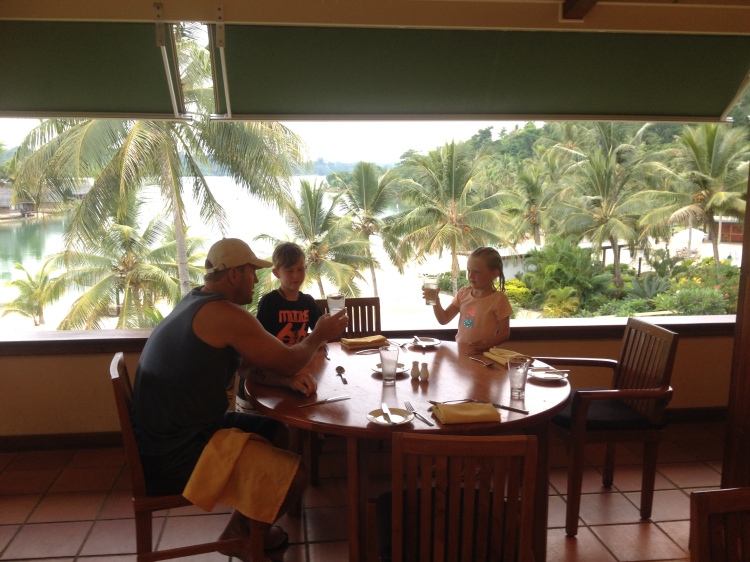
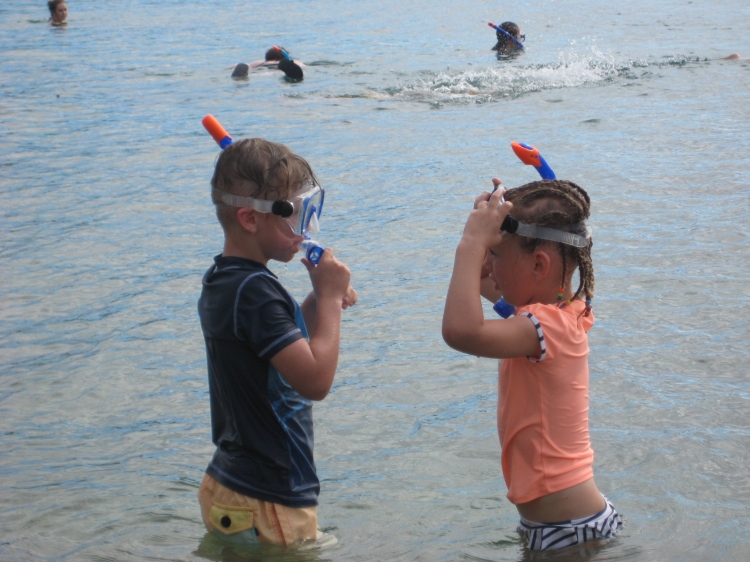

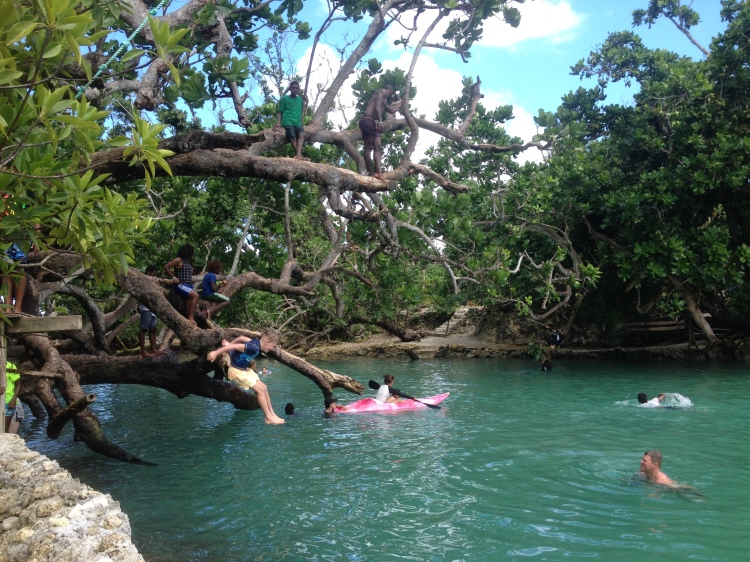
But alongside all this eco friendliness was clear evidence of waste management issues. Plastic rubbish was everywhere and I could feel this little island drowning in it. Plastic packaged convenience items are constantly brought to the island, consumed and dumped because the infrastructure and behaviour changes needed to deal with these different waste materials has not been established or given the same priority as economic growth and social development needs. A Global Atlas article ranks Vanuatu as the 12th highest trash generating country at 3.28kgs per capita per day. Thankfully, consideration for the environment is now recognised as a national priority and there are many people working to address waste management issues.
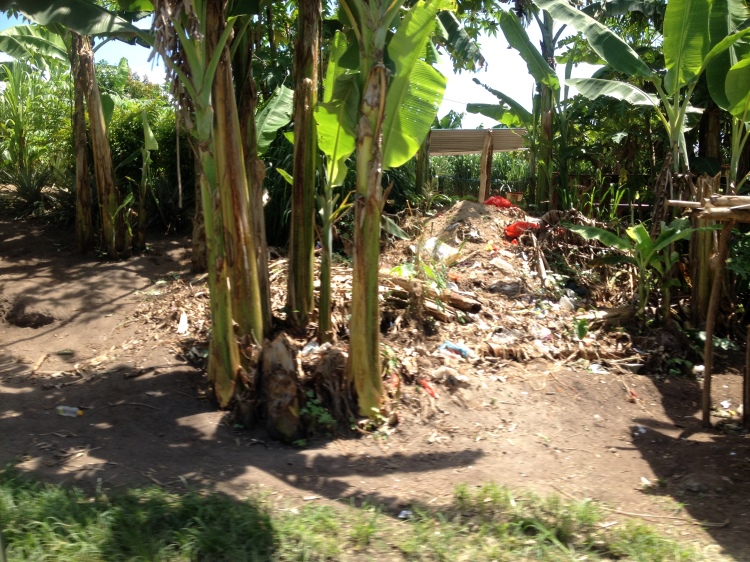
For me this trip reinforced the importance of ‘refusing’ as a first step in waste management. If I had been relying on recycling as my main method of achieving zero waste I may not have developed the skills and knowledge to lower my level of consumption and corresponding waste during this trip. What is recyclable is dependent on location. I also further pondered the balance between utilisation and enjoyment of natural resources with their conservation, and on top of that, population growth. There are often not simple answers but we can always aim to do the most good and the least harm with the knowledge we have.
References:
Solid Waste Management in the Pacific: Vanuatu Country Snapshot (2014 pdf)
Vanuatu National Environment Policy and Implementation Plan 2016 -2030 (pdf)

It looks like you had a great ‘practically waste free’ holiday! It was good to see pics of your family enjoying themselves. I used to teach year 11 students from Vanuatu via distance education. They were very hard working students. 😊
LikeLiked by 1 person
We did have a great time. We all wanted to stay longer 😄🌴🌺🌊
LikeLike
I visited Vanuatu years ago on a dive trip. Plastic waste wasn’t on my radar at the time, but I remember so well the market being package-free (except natural packaging as you’ve shown) and being served meals on banana leaves. Im happy to see some of the traditions are still alive today. That’s a special place. Thanks for sharing!
LikeLiked by 1 person
No problem Julie, it is a special place – and still recovering from cyclone Pam in March 2015. There is a little bit of packaging creeping into parts of the market. I saw some plastic net bags and polystyrene containers but 95% of it was still plastic free.
LikeLike
Countries that do not have appropriate recycling and rubbish disposable capacity need to introduce policies that make those importing products that are recyclable and non-recyclable responsible for their removal. Working in the dairy industry some years ago I know this was a policy for exports to some European countries. The packaging protecting your goods eg. boxes etc. was either recyclable or you paid for its’ disposal or shipment back to you.
I heard about this traditional village on the radio at the weekend as there is a film up for an award about it, but just thought this would be a good place for an eco-tourism education opportunity to talk to visitors about the fact that organic items decompose and leave no rubbish versus synthetic/man-made products.
LikeLiked by 1 person
Absolutely agree, Nola.
LikeLike
Love it Tammy (apart from the plastic issues you sore). What a beautiful smile on Ainsley’s face! Hope you are relaxed and ready for a great year.
LikeLiked by 1 person
Was very relaxed but already feeling a bit of anxiety creep in about all the things I have on the calendar. Going to have a serious think about some of them today.
LikeLiked by 1 person
Good to see the children enjoying their simple woven toys and other items.
LikeLiked by 1 person